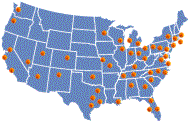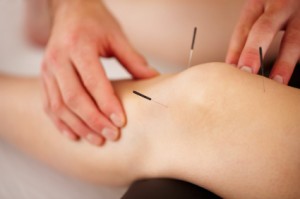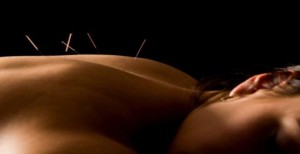-
Book Online Now - Acupuncture Solutions3900 Pebblecreek Ct #101
Plano, TX 75023972-612-4900 - 6501 Wesley St #A-1
Greenville, TX 75402903-213-3679 Learn more about…
#autumn #balance #behappy #fall #familytime #germs #healthlyliving #healthyskin #immunesystem #organs #psoriasis #seasons #sunscreen #thinkpositive acupressure acupuncture allergies anxiety coronavirus covid-19 depression diet digestion energy exercise headaches health heart herbs kidneys liver lungs meditation migraines nutrition pain pms qi sleep spring stress summer tcm Traditional Chinese Medicine winter
Acupuncture
Women’s Health Issues
 Here is a good summary of women’s health issues that was compiled by acufinder.com.
Here is a good summary of women’s health issues that was compiled by acufinder.com.
Everyone wants to be healthy in order to enjoy a sense of well-being and have the best quality of life possible. Oriental medicine has always addressed the special needs of women throughout their lives. Women are more susceptible than men to certain health conditions, which can make it more challenging to achieve optimal health. Fortunately, many health issues women face respond extremely well to acupuncture treatments.
Several conditions that impact women more frequently than men include:
Depression:
The National Alliance on Mental Illness (NAMI) states that women are twice as likely to experience depression as men and one in eight will contend with major depression during their lifetime. According to the World Health Organization (WHO), depression is the most commonly reported mental health problem among women.
Chronic Fatigue Syndrome (CFS):
Four times as many women as men develop chronic fatigue syndrome. CFS sufferers may feel tired for more than six months, experience reduced memory, insomnia or a wide range of other symptoms, including but not limited to, headaches, flu-like symptoms and chronic pain. Oriental medicine can help relieve many of your symptoms because it is exceptional for relieving aches and pains, helping to avoid getting sick as often, recovering more quickly, and improving vitality and stamina.
Irritable Bowel Syndrome (IBS):
Women are 2-6 times more likely to develop IBS. Acupuncture points can help relieve IBS symptoms, according to researchers from the University of York in the U.K., who found that integrating acupuncture into a treatment plan led to less severe symptoms.
Autoimmune Diseases:
According to the American Autoimmune Related Diseases Association (AARDA), about 75 percent of autoimmune diseases occur in women. As a group, these diseases make up the fourth-largest cause of health related disability among American women.
Some specific autoimmune diseases that affect women disproportionately more than men include:
- Multiple Sclerosis (MS): Nearly half a million Americans have multiple sclerosis, and of that group two-thirds are women. According to the American Academy of Neurology, women with MS are nearly 1.5 times more likely to carry the gene associated with the disease, and are more likely to transfer the gene to female offspring.
- Lupus: Ninety percent of all lupus patients are female. Lupus has no known cause, though it is believed it may be hereditary, and may also be triggered by stress, environmental toxins, sunlight, exposure to fluorescent light, and some medications.
- Celiac Disease: An autoimmune disorder that affects the digestive system due to an adverse reaction to gluten, 60 to 70 percent of celiac disease patients are women.
Read More about acupuncture and Oriental Medicine for women’s health!
ALLERGY CAPITALS
 There is no place safe from allergies in America, and some cities are more problematic than others. The Allergy Capitals is an annual research project of the Asthma and Allergy Foundation of America (AAFA) to identify “the 100 most challenging places to live with allergies” during the spring and fall seasons.
There is no place safe from allergies in America, and some cities are more problematic than others. The Allergy Capitals is an annual research project of the Asthma and Allergy Foundation of America (AAFA) to identify “the 100 most challenging places to live with allergies” during the spring and fall seasons.
Here is the list of the top 100. If you live in the DFW area we are now at #10. The good news is there is an option to the traditional treatments. The acupuncture/acupressure techniques that I use have been getting great results. If you are tired of sneezing, having itchy eyes, or being congested you should give me a call to found out more.
It’s That Time of Year Again
Relieve Your Seasonal Allergies with AcupunctureBy: Diane Joswick, L.Ac., MSOM |
|
|
|
Acupuncture 101: How do Needles Work?
Ever wonder why inserting a tiny needle between your thumb and index finger can help your headache? Or putting needles in your ear can help your indigestion?
Many people wonder how acupuncture works. Scientists and doctors are especially prone to skepticism about acupuncture. To people trained in western medicine, it doesn’t make sense. Traditional Chinese Medicine (TCM) does not follow their familiar logic.
Yet there is growing body of evidence that TCM, and acupuncture specifically, is an effective treatment for many injuries and diseases–often with few side effects. For these reasons more and more hospitals, clinics and doctors worldwide are recommending it for their patients.
Research and clinical trials will continue but for the people who have found relief from their symptoms and conditions using these ancient techniques, such research is unnecessary. They know acupuncture works.
But why?
Western Perspective
There are several theories to explain acupuncture. The most widely accepted is that the stimulation of acupuncture points with needles sends electrical signals to the brain to release endorphins, the chemicals that make us feel good. Another theory states that acupuncture needles stimulate blood flow and tissue repair at the needle sites. Still another states that needles send nerve signals to the brain that regulate the perception of pain and reboot the autonomic nervous system to a “rest and relax” state. Some scientists now believe that acupuncture uses several of these mechanisms at once.
While each theory explains some of the clinical trial results, none of them explain the wide range of conditions that benefit from acupuncture.
Eastern Perspective
There is no western analogy to Traditional Chinese Medicine concepts.
TCM believes Qi, or life energy, flows through the body. The Qi flows in channels called meridians and the meridians connect the organs together. To remain healthy you need the free flow of Qi through the meridians, much like rivers flow in their riverbeds.
Sometimes the flow of Qi becomes imbalanced. Like a river, it can be blocked, excessive or  deficient. To rebalance the Qi, you stimulate acupuncture points to free the flow of Qi and return it to a more balanced state. One way to stimulate the points is with acupuncture needles.
deficient. To rebalance the Qi, you stimulate acupuncture points to free the flow of Qi and return it to a more balanced state. One way to stimulate the points is with acupuncture needles.
Since the meridians connect the organs of the body, sometimes you can stimulate an acupuncture point that seems completely unrelated to the organ you want to balance. If you unblock a river at one point the flow of the entire river, upstream and downstream, returns to normal. Acupuncture works much the same way.
References: http://online.wsj.com/article/SB10001424052748704841304575137872667749264.html
